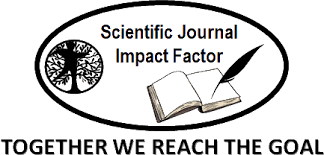SUSTAINING A SUSTAINABILITY REPORT BY MODIFYING TRIPLE BOTTOM LINE TO PENTAPLE BOTTOM LINE: AN IMAGINARY RESEARCH DIALOGUE
DOI:
https://doi.org/10.21776/ub.ijabs.2019.27.1.7Abstract
The study is an imaginary research dialogue. The dialogue is between two scholars: Senior and Junior Researchers. To bring up their imagination, postmodernism is used to explore the dialogue. Both are trying to discuss the current issues on Sustainability Report Disclosures. The objective of the study is to explicate Sustainability Report Disclosures by modifying Triple Bottom Line to Pentaple Bottom Line. Postmodernism is used to open our minds of research report writings and arguments by using dialogue to introduce Pentaple Bottom Line in Sustainability Report Disclosures.
The result of the study is that Pentaple Bottom Line is a mode of comprehensive disclosures on the preparation of sustainability report by any organization either business or public, and either big or small. The Pentaple Bottom Line is 5 Ps: Planet, People, Profit, Phenotechnology and Prophet. Planet means to preserve natural environment as a balance of operational activities of an organizational contribution. People give its meaning that the balance with the welfare of people (internal and external organizations) or the community becomes important to contribute to the corporation. Proportion in providing justice in people's welfare is an effort to be balanced. Profit is an effort that is now dominant in achieving organizational performance must be balanced. Profit or welfare in economic aspects is important, but must be balanced with the other Ps. Phenotechnology is the fact that the existence or phenomenon of information technology must be an important part in maintaining the survival of the corporation. Prophet is a spiritual, mental, or spiritual balance in the process of preserving life of an organization.
References
Bowen, Howard. 1953. Social Responsibility of the Businessmen. Harper & Rowe: New York.
Elkington, John. 1999. Cannibals with forks : the triple bottom line of 21st century business. Oxford: Capstone.
Global Reporting Initiative. 2016. Consolidated Set of GRI Sustainability Reporting Standards 2016.
Sukoharsono, Eko Ganis and Dyah Ayu Widhayati. 2017. Sustainability Report and Creating Shared Value (CSV): Sustaining a Business of Urea Fertilizer Manufacture in the Case of Pupuk Kaltim Indonesia. Presented at: SIBR-RDINRRU 2017 (Sydney) Conference on Interdisciplinary Business and Economics Research, 15th - 16th April 2017, Sydney, Australia
Sukoharsono, Eko Ganis. 2007. Green Accounting in Indonesia: Accountability and Environmental Issues. The International Journal of Accounting and Business Society. Vol.15. No 1. August. Pp.23-66.
Sukoharsono, Eko Ganis. 2008. Religion, Spirituality, and Philosophy: How Do They Work For An Accounting World? The 3rd Postgraduate Consortium in Accounting: Socio-Spiritual ..., Postgraduate Program University of Brawijaya, 8-9 September.
Sukoharsono, Eko Ganis. 2009. Spiritual Intelligence Definitions: Availability for Accounting Knowledge. Unpublished Working Paper. Faculty of Economics. University of Brawijaya
Sukoharsono, Eko Ganis. 2010. Metamorfosis Akuntansi Sosial dan Lingkungan: Mengkonstruksi Akuntansi Sustainabilitas Berdimensi Spiritual. Unpublished Naskah Pidato Guru Besar. Faculty of Economics. University of Brawijaya. Desember.
Sukoharsono, Eko Ganis. 2011. Green Accounting To Be A Serious Business of Accounting Discipline: An Imaginary Neo-Postmodernist Dialogue. Presented at the Plenary Session of the Grand Opening of the Accounting National Symposium (Simposium Nasional Akuntansi - SNA) XIV ACEH, INDONESIA 20-23 July 2011
Sukoharsono, Eko Ganis. 2018. Strategies to Improve the Sustainability in Promoting Transparency,
Accountability and Anti-Corruption: An Imaginary Dialogue. The International Journal of Accounting and Business Society. Vol.26. No 1. August.
United Nations. 2015. Transforming Our World: The 2030 Agenda for Sustainable Development
United Nations. 2016. UN E-Government Survey 2016.
Downloads
Published
How to Cite
Issue
Section
License
The copyright of the received article shall be assigned to the journal as the publisher of the journal. The intended copyright includes the right to publish the article in various forms (including reprints). The journal maintains the publishing rights to the published articles.












